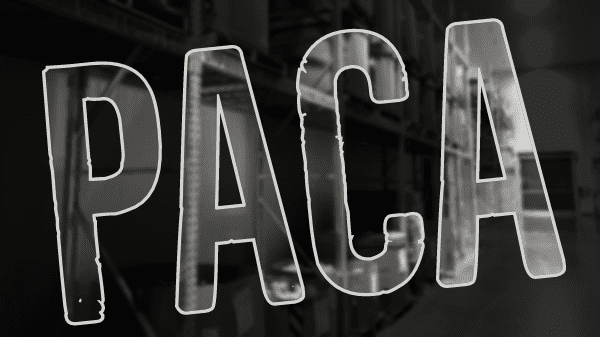Welcome to Blue Book!
Are you ready to join the thousands of companies who rely on Blue Book to drive smarter decisions? View our plans and get started today!
Still have questions? We’d love to show you what Blue Book can do for you. Drop us a line– we’ve been waiting for you.
The Problem: Carrier denies full responsibility despite evidence product was frozen in transit.
The Key Point: If the carrier can conclusively show the product was affected by significant defects not caused by freezing, it may have grounds for reducing its responsibility for losses.
The Solution: The carrier is responsible for making the injured party whole.
QUESTION
We are a truck broker based in the Northeast. Recently we hired a carrier to load in Plant City, FL and deliver to Golub Corporation in Schenectady, NY. The truck arrived on time, but was refused because the inspection showed that the upper layers of the pallets in the rear of the trailer were affected by freezing injury. Specifically, the USDA inspection certificate indicates the product was “water soaked and translucent…freezing is so located as to indicate that freezing occurred on the trailer.” Also, the portable recorder indicated temperatures well below freezing for several hours. Despite this evidence, the carrier is refusing to honor the claim, stating the load was refused due to quality not freezing. I have tried to explain the condition was caused by the freezing. Perhaps a third-party perspective would help resolve this impasse.
ANSWER
We agree with you. The only leg the carrier would have to stand on here would be if it can show that the product had substantial defects unrelated to the freezing. In that case, the carrier could argue that the product it froze was never going to fetch full market value, thereby reducing the amount of damages attributable to the truck. In other words, if the carrier destroys distressed product worth $10.00, then damages against it should be less than if the carrier destroys good product worth $20.00. But the defects you describe appear to have been caused by freezing injury in transit (water-soaked appearance and translucence are classic signs of freezing injury), leaving the truck responsible for the full market value of the losses you describe.
The Problem: Product subjected to warm temperatures rejected despite good condition upon arrival.
The Key Point: We have generally taken the position that produce receivers may reject when air temperatures in the trailer are not properly maintained
The Solution: The carrier’s best defense is to make sure air temperatures in transit are properly maintained.
QUESTION
We are a truck broker with offices throughout the United States. We have a general question regarding temperatures and rejections. Can a receiver reject a fresh produce load based solely on the recorder showing a period of time (outside of defrost cycle) that the product was exposed to extreme temperatures? And if so, is this true even if the majority of the load arrived at temperatures within receiving specs and showing no signs of issues yet?
ANSWER
First, we would hope most receivers would not reject where it is unclear if the product sustained any appreciable damage. But, because the shelf life of fresh produce may be affected by transit temperatures that are too warm or too cold (see our Transportation Guidelines for Blue Book’s rule of thumb for assessing transit temperatures), we have generally taken the position (although reluctantly) that produce receivers may reject when air temperatures in the trailer are not properly maintained in the absence of contract terms to the contrary.
For example, let’s say air temperatures in transit were extreme the first day, but fine the rest of the trip. And let’s say pulp temperatures at destination for most of the product are in range and that the appearance of the product has not been affected, at least not yet. Still, the product was subjected to extreme temperatures and would be less desirable than product that was properly maintained throughout the chain as the receiver expected; consequently, we believe a receiver would have sufficient grounds to reject. Although this may sound harsh, if the product remains in good condition, then in theory, it should also retain significant salvage value following the rejection.
We would, however, caution receivers that carriers in this situation can be expected to argue, among other things, that receivers have a duty to mitigate losses—which is inconsistent with rejecting fresh produce in good condition at the time of delivery. Depending on the specific facts involved, these arguments could certainly be persuasive. Ultimately, however, the carrier’s best defense is to make sure air temperatures in transit are properly maintained.
Your questions? Yes, send them in. Legal answers? No, industry knowledgeable answers. If you have questions or would like further information, email tradingassist@bluebookservices.com.




